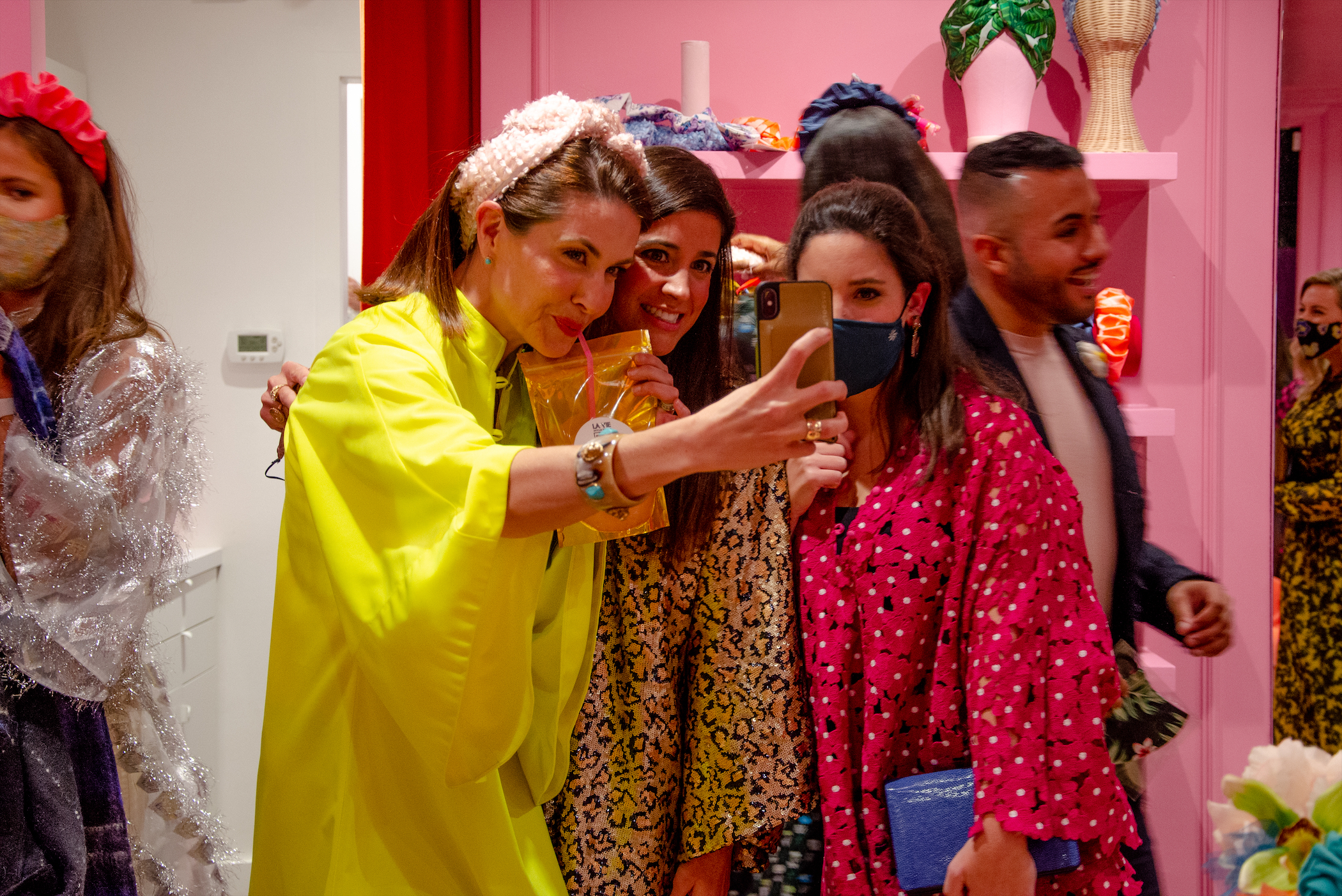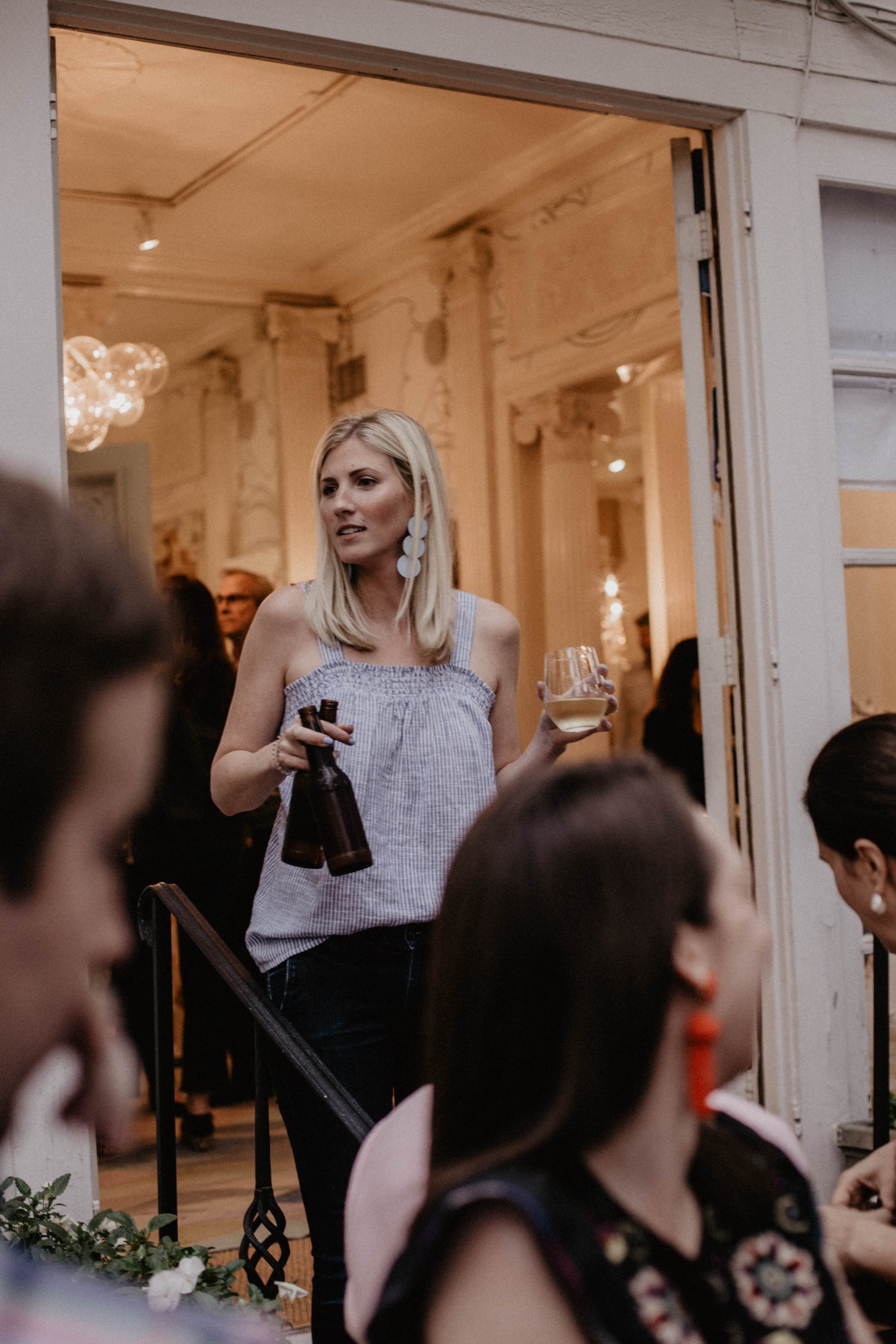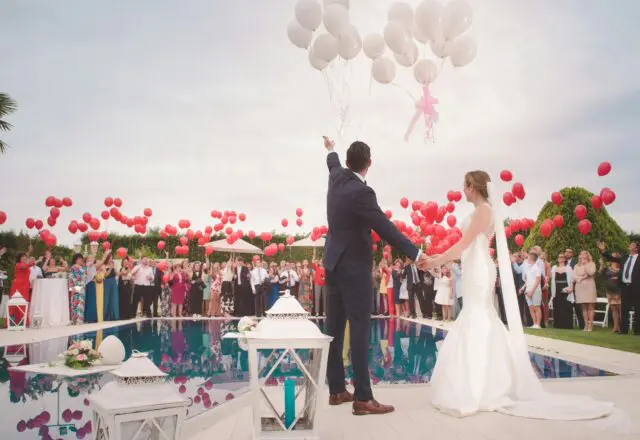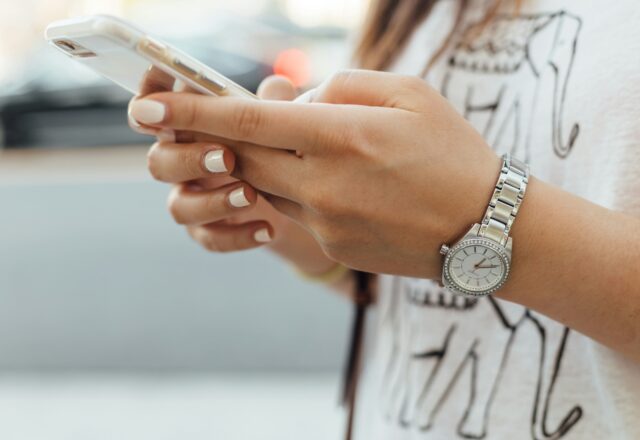Social in Security — An Etiquette Ambassador’s Guide to Modern Party Etiquette
From Heading Straight to the Bar (It’s OK!) to Being Fashionably Late
BY Caitlin Clark // 07.28.21
Scenes from La Vie Style House's boutique opening party in Dallas' Highland Park Village last November. (Photo by Cassandra Willis)
Whether we’re emerging from a global pandemic or not, social anxiety can strike at any time. Your best line of defense: knowing what’s expected of you, so you can relax back into your best party going self. That’s where etiquette comes in — not the stuffy napkin folding of cotillions past, but a more modern approach that helps keep the stressors of small talk at bay.
“Modern etiquette is not about beating us into conformity any more than modern fitness is about transforming every body type into a Gisele Bundchen or Tom Brady clone. We know in this millennia (thank God!) this is not actually a thing,” says Heather Wiese Alexander, a Dallas etiquette ambassador and founder of luxe stationery line Bell’INVITO. “So this truly is for you. Wherever you are, whatever your personality type is. Social is human. You can and should be happy and successful doing your version of it.
We polled Wiese Alexander on every event-going etiquette question we could imagine to arm us for a season full of social events and formal gatherings. From leaving a good impression and cell-phone etiquette to the limits of the idea behind “fashionably late.”
You’ve just walked into a crowded party… is it OK to head straight to the bar?
Listen to this: yes it is! See? Etiquette rules are not all stuffy. Even your grandmothers knew the line to the libations was a great place to start, whether it was a cocktail bar or a punch bowl. The point of a party is to be social. There is always socializing around the bar, in the line, on your way to the bar. It’s a good place to start if you’re not sure where to start. If you’re a little anxious about mingling, a light dose of liquid courage doesn’t hurt.

What are some key rules to remember when it comes to introductions? Whether it’s you doing the introducing, or you being introduced.
There are two segments of this subject. First, formal introductions are used often professionally and in—well let’s call them “well-heeled circles.” Then there are the rest of us trying to navigate the pool parties and general gatherings as the world re-opens. For our purposes, I’ll go with the latter.
You’re the host. The most important thing to remember is to make introductions to guests who haven’t yet met. You don’t need to parade any one guest around to every other person. Introduce guests to each other in an organic way. From there the conversation emerges. First and last names are the ‘correct’ way to make the introduction, but very casually, a first name is fine. If you find yourself saying, ‘Blake, this is Casey,” you’re winning. Then take it one step further with some detail like, “Casey and I just finished a trip from Austin near your uncle’s restaurant.”

One issue I’m still running into post-Covid is the hesitation around handshaking. I don’t want to be rude and not shake someone’s hand, but I also don’t want to force them to do something they’re not comfortable with. What’s the best way to work around this while we’re all still adjusting to post-pandemic socializing?
Perfect question to follow introductions. Right, it is awkward. The best way to start from an emotional intelligence standpoint is to address the elephant in the room with a little humor. Before you even say your name, toss out your version of, “are we shaking hands? Hugging? Elbow bumping?” Make it light-hearted and neutral. Be ready to go with the flow.
Wherever you are, whatever your personality type is. Social is human. You can and should be happy and successful doing your version of it. – Heather Wiese Alexander
What are some good conversational go-tos (that have nothing to do with the weather) to arm yourself with for small talk?
If we’re being honest, this is a loaded question. Before we talk subjects, let’s talk audience. Know it, at least generally. A question or two related to the reason the group has gathered is smart to have in your pocket.
This is the crucial tip: don’t come armed with topics to talk about, come with questions to ask. If you’re not a naturally curious person, these questions will help you learn the art of learning. For you natural self-promoters this also means your questions are not (ahem…) redirecting the conversation back to you. Take a few tools and use them to gain confidence, comfort, and even happiness in what is a necessary social environment for all of us at some point. Now for some tools.
Here’s the scenario. You’re stuck with one or two people you barely know or don’t know well. Ask an open-ended question about one of these safe topics. Remember to use your own words so it feels natural. Open-ended questions sound something like, ‘What was your experience with …. ? How have you been finding time to unwind lately? How was it that you got to know …?
– Travel
– Books / Movies
– Pets
– Local Businesses
– Food / Wine
– Local Festivals / Culture

Everyone wants to make a good impression. What are some conversation habits that will leave a positive mark?
Sincere compliments and genuine interest will get you far. Introductions and remembering little details will get you even further. I can’t emphasize this enough, redirect your mind to think of a social setting as a class in other people’s interests. Learn opinions, perspectives, trivia, even personality types. Become an observer. Most people show up wanting to be seen, understood, and heard. Show up to be genuinely interested in others. You will win every time.
It’s easy to let your phone become a crutch when you’re feeling alone at a party. Are there less off-putting tactics for giving yourself something to do when you’re feeling lost?
Yes, and yes! The phone is so tempting, but nothing screams, ‘I’m insecure and socially awkward!’ like looking at your phone for more than about 10 seconds in the midst of a crowd, whether you are feeling that way or not. Look at photos on the walls around you, take in the details of the room, introduce yourself to someone who looks like they are in the same boat, head to the bar—do anything but dive into your phone. If you truly need to talk to your friend running dreadfully late, get somewhere more private so you’re not the one sporting the un-flattering glow of I’m-alone-phone-face in the midst of the socializing crowd.

When does “fashionably late” become just plain late?
If you need a hard number, you’re probably erring on the side of being inconsiderate. Your host has prepared. Arrive on-time-ish (P.S. –ish is about 5 minutes).
Here are some guidelines. Group seating commitments — like weddings, funerals, shows, meeting at restaurants, etc. — arrive on time. No fashionably late cards apply. Trust me, you’re not fashionable enough. Otherwise, you have a grace period of about 10 min from the start time. Typically, showers and cocktail parties are come-and-go events, however, commonly modern hosts don’t realize that’s the tradition, so they expect people to stay the full time; and modern guests don’t understand the hosts’ expectations, so they show up late and leave early. This is why invitation wording truly is crucial.
If it’s a come-and-go then arrive in the parameters set. Last is the unclear start with no-end-time get-together that you assume might have food? This is where you probably have the most room to roll in more casually. That said, if you said you were coming, get there at the latest within 20 min of the start time, assuming this gig is an hours-long large group event with a bunch of cool, casual cats you see often.
How do you politely turn down a party invitation?
Promptly and clearly. There’s nothing wrong with saying no. You don’t need to explain. There is everything wrong with any version whatsoever of ‘maybe.’ And the genius at Facebook who introduced this notion to a vulnerable generation of social learners should be dipped in honey and left in a south Louisiana bayou.








_md.jpg)






_md.jpeg)







